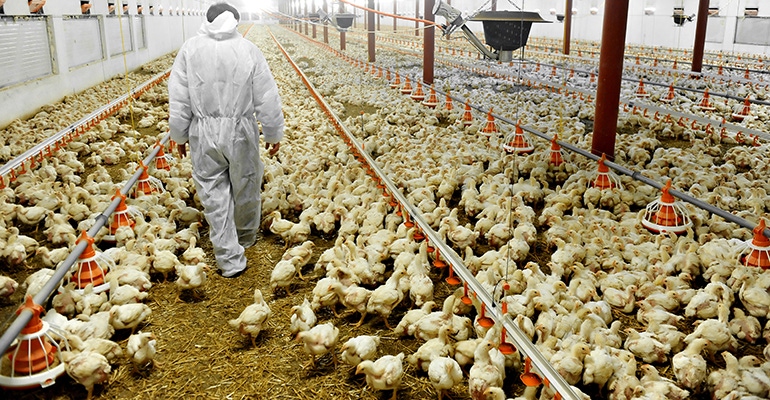5@5: The end of 'cruel' meat? | Tech investors shift focus in food start-up space
Each day at 5 p.m. we collect the five top food and supplement headlines of the day, making it easy for you to catch up on today's most important natural products industry news.
January 29, 2019

Ending the age of animal cruelty
In this thorough interview Bruce Friedrich of the Good Food Institute discusses the societal transition from industrial animal agriculture to plant-based and cell-cultured meat. This shift would effectively end widespread animal cruelty as we know it, in addition to providing cheaper, cleaner meat products to the general population. Friedrich believes that consumers choose which meat to buy with three main things in mind: Taste, cost and convenience. If the cell- and plant-based meat industries can succeed on these three fronts, change is inevitable. Read more at Vox …
Tech investors are dumping millions each year into food start-ups, but their appetites are changing
Tech investors are taking a good hard look at where opportunity within the food industry lies after seeing recent stumbles in the meal kit and delivery-only restaurant markets. Now, they are placing their bets on the parts of the space with the quickest growth, including realistic meat alternatives and platform-to-consumer delivery apps. Sustainable food companies that offer tech investors the opportunity to have a positive impact on the world are also increasingly desirable. Read more at CNBC …
Ocasio-Cortez’s Green New Deal: What it means for food and farming
The Green New Deal is a decade-old idea that shines a spotlight on a carbon-neutral economy to stave off climate-related catastrophes—and the implications for the food system would be huge. Our entire agricultural structure would need to be redesigned to become a net absorber of carbon, a large amount of people would have to be incentivized to work as carbon-friendly farmers and low-carbon food would need to be made affordable for everyone. The question is, does it stand a chance at being passed? Read more at Modern Farmer …
Real Junk Food Project turns supermarket waste into tasty meals
UK-based organization The Real Junk Food Project (RJFP) encourages supermarkets to distribute their unused food destined for landfills to local cafes instead. RJFP now operates 127 cafes in seven countries in addition to 10 “social supermarkets,” which collect, store and distribute waste food on an even greater scale. Patrons at these establishments are welcome to pay as much as they want, or nothing at all. Read more at The Guardian …
Which allergens are in your food? You can’t always tell from the labels
Companies are required to warn consumers when prepackaged foods contain milk, eggs, fish, shellfish, peanuts, wheat, soybeans and tree nuts—but some prevalent allergens, such as sesame, were left out of the labeling law passed by Congress. Manufacturers who hide these allergens under “natural flavors” or “spices” pose a huge risk to allergic consumers. Unfortunately, there’s more: Cross contact, trace amounts of allergens and plainly wrong labeling are also factors in learning the “foreign language” of food labeling. Read more at The New York Times …
You May Also Like


